This is the newsletter version of Sara by the Season, where I explore what is piquing my curiosity as I try to lean into nature’s wisdom and rhythms. You can listen to me read you the newsletter by hitting play above - or you can click the little link above and to the right to play in your favorite podcast player. If you know someone who would like this sort of thing, I’d be so grateful if you would share it.
Brené Brown is famous for popularizing the difference between shame and guilt. She writes, “Shame is ‘I am bad.’ Guilt is ‘I did something bad.’” This distinction has been, if not life changing, then at least very instructive for me as an adult, and especially, as a parent. I am careful to talk to my kids about their behavior instead of their character when correction is needed. So much so that it’s become something our kids make fun of me for: “We know, Mom! We’re good kids who made a bad decision,” they’ll say in stereotypical teenage exasperation.
This distinction came to mind when I was listening to Nedra Glover Tawwab discuss family drama styles on the We Can Do Hard Things podcast. Glennon, one of the hosts, said:
It’s like parental fragility. It’s a little bit like white fragility. It’s like, “I can’t look at that because that will ruin my identity as a good parent.” Is accountability a cultural thing? Is the older generation like, “What the hell are you talking about — because they had an authoritarian model for parenting”?
We’ve had some difficult conversations with both of our parents since we started questioning the faiths we were raised in, which led to questioning all sorts of different things. Additionally, once you encounter people different than you or go to therapy or see even a bit beyond yourself, it opens your eyes to the ways in which the family, political, cultural, and religious systems you were raised in affect your personality, values, worldview - basically, everything. You think “this is just the way things are or are supposed to be” until or unless you’re forced to confront people with different values and experiences, whether that is personally, through art, or through a good teacher. From there, you either double down on your way being the right way or you open up to the possibility that there are many different ways of being human.
Last year, one of our daughter’s teachers made her own child sit out of some movie because there was a transgender character in the film. Later that day, at lunch, our daughter was talking with friends and said the teacher was transphobic. Someone overheard her say that, and she got called into the principal's office with the teacher in question. The teacher confronted her about it, and our daughter basically said, “well, you wouldn’t let your daughter watch the film because there was a transgender character, so doesn’t that make you transphobic?” The principal deescalated the situation fortunately, and our daughter returned to her classroom.
We were proud of her for sticking up for her ideals, of course. But later we talked about how that teacher made a transphobic decision, but did that make her transphobic? We talked about, in the future, talking about the behavior instead of making blanket statements about the person’s character. We used the “good kids who made a bad decision” line as the analogy, which made sense to our kids.
In the wake of George Floyd’s murder and the subsequent BLM protests in the summer of 2020, we met up with some friends that we love very much. They brought up their frustration with the protestors; we said we were more concerned about police brutality toward Black people. It escalated from there. They said some things, to which Grant or I or both of us said, “that’s a pretty racist thing to say.” Eventually, we felt like we had to leave because staying felt like complacency with what was being said. It was…not great.
I thought about some of the contentious conversations we’ve had with our parents and other friends and acquaintances, especially since 2016, and our daughter’s principal visit when I heard Glennon’s comment because I’ve wondered why people react so viscerally when someone tells them they said or did something racist or homophobic or ableist (or fill in the blank). Obviously, when we’re talking about racism, we point to white fragility, but this has happened enough times to me to question if there is something wider going on here that goes beyond race.
I’ve written before about the power in naming things, and the same is especially true for ourselves. If we don’t properly identify the troublesome behavior, language, ideology by naming it as a problem, we have no hope of even seeing it, let alone addressing and healing it. I’ve been on the receiving end of correction enough times - sometimes kindly and sometimes not so kindly - to see the fruit that comes from knowing better and doing better.
It surprises me when I see those interviews of people at a Trump rally when they’ll say something blatantly racist, but then adamantly claim they aren’t racist. Like we’ve obviously made “racist” a bad word and that is of course a good thing. But by making it such a bad word to call someone, we keep people from seeing how their actions and words can be racist without it making them racist. Certainly some of the people who are so upset about the so-called spread of wokeness are actual racists and homophobes and the like. But I wonder too if some of our problem is calling out people and lumping them in a category instead of calling out the language they’re using or the behavior they’re exhibiting or benefiting from.
If you do even a modicum of reading around parenting, you constantly see therapists admonishing parents to avoid labeling their kids. Google “labeling kids,” and you’ll get thousands of articles on why labeling kids is dangerous and what to do instead. According to cognitive behavioral therapy, labeling is “a cognitive distortion in which we generalize by taking one characteristic of a person and applying it to the whole person.” We’re warned about the dangers of doing this to kids, but we’re almost constantly doing it to those who disagree with us.
No one loves being called out. I don’t even handle basic criticism all that well and have to continually work on handling it better. I wasn’t raised to recognize the difference between shame and guilt, but I’ve been in therapy and trying to dismantle my own racism, prejudice, homophobia, and misogyny long enough to recognize that making a bad decision - or a racist comment or a bigoted joke - doesn’t make me a bad person, but it still makes those actions problematic. But if I can’t or won’t even name for myself that a comment I made or something I did or a system I benefit from is problematic, I have no hope of doing anything differently in the future, let alone realizing my mistake.
In the quote above, Glennon asks if this refusal to take accountability comes from “an authoritarian model of parenting.” If you never learned the distinction between shame and guilt, if your parents used guilt to keep you in line (which was completely normal for many cultures across human history and is still for many today), does admitting any wrong make you feel like a bad person instead of a good person who made a mistake - or maybe more likely, a good person who just hasn’t learned that yet?
This is what to me is most maddening about book banning or people like DeSantis and Abbott and their ilk passing “anti-woke” education bills. We need more reading, education, and stories about people different from us. We need to learn about our entire history, the ugly parts and the parts we can be proud of. We need to study the systems that have gotten us to where we are today, so that we can address the inequities and come to understand how it is in the best interest of the elites to keep us fighting against one another so that we don’t join forces and fight back against them.
Calling out wrongdoing is necessary. I don’t know that marginalized folks need to worry themselves with the fragile feelings of the people benefiting from their marginalization and oppression. But there are lots of people like me who are a part of communities where we could practice calling out problematic behavior and language when we experience them, and I’m wondering if we could speak to the actual behavior and language like a good therapist teaches us to do when it comes to our own or our children’s behavior instead of blanket statements that leave little room for growth or understanding.
As I write it out, it sounds small, but I think smallness is where the most lasting wisdom begins.
Scattering Seeds
I’m always finding stuff that supports the thesis of the book I’m writing on the benefits of leaning into nature’s wisdom, as well as other things related to this newsletter’s topic that maybe didn’t fit into the actual newsletter, so I thought I could start sharing those links and things here with all of you in hopes of some of the seeds I share germinating into something beautiful at your place.
Brené on shame vs guilt and this excellent podcast episode with her discussing the need for accountability around racism, but which is helpful advice anytime we’re called out.
One of my favorite books of this year, Elise Loehnen’s On Our Best Behavior: The Seven Deadly Sins and the Price Women Pay to Be Good talks about (among other things) how toxic even pursuing so-called good labels can be.
In this interview on For the Wild, Tyson Yunkaporta is asked about how to create resilience in crisis, and he responds beautifully:
[Resilience] quite simply looks like diversity. You know, so you need unique community and strong community. But if in your community, everybody thinks the same way and believes in the same thing, and is acting the same way, you don't have any resilience. The resilience only comes through diversity, like real, genuine diversity. So I'm not talking about you know, you've got some Sikhs, and you've got some, I don't know, Latvian transgender people there, and you've got some, you know, differently abled people there and cognitively diverse people there and these are all the people in our community, we have diversity, but you all think the same way, and follow exactly the same rules and logics and everything else, you don't actually have diversity, and all you have is a diverse portfolio of identity capital, so that's not genuine diversity. That's not genuine resilience.
Genuine diversity is, it goes down to what people actually are. It comes down to a lot of people having very different ideas, and talking together, and yet somehow still forming a community with very strong bonds and that is productive. If you have that, you have as many different kinds of people with different capabilities and abilities and thought processes and worldviews who can yet cohere together around that organizing principle of, you know, maintaining, you know, a collective that is individual and diverse at the same time. If you have that, then you have resilience.
I think part of fostering the types of communities Yunkaporta is talking about is learning how to address and critique behaviors instead of labeling whole groups of people.
Here’s to skipping labeling ourselves and others in the season ahead,
Sara


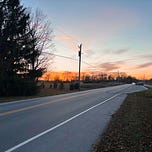



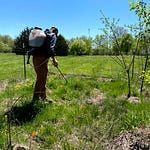
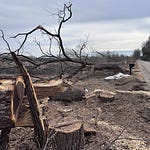

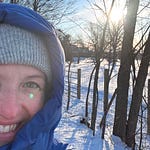
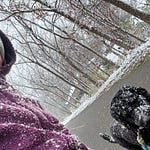
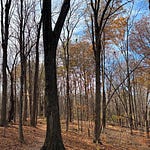
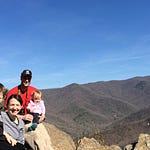
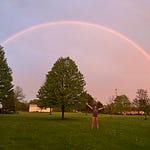
Share this post